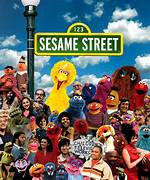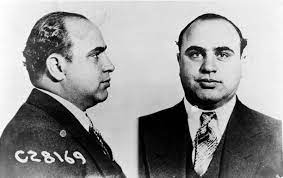In 1969, the United States of America witnessed the debut of a groundbreaking and beloved educational television program that would go on to captivate audiences of all ages - Sesame Street. Created by Joan Ganz Cooney and Lloyd Morrisett, this innovative show transformed the landscape of children's programming and became an iconic part of American culture.
Sesame Street was designed to provide quality educational content for children, particularly those from disadvantaged backgrounds. It aimed to bridge the educational gap by using television as a tool to teach fundamental skills such as reading, math, and social interaction. The show utilized a combination of live-action segments, puppetry, animation, and catchy music to engage young viewers and make learning fun.
The diverse and colorful cast of characters quickly became household names. From Big Bird, the friendly and curious yellow bird, to Oscar the Grouch, the lovable but grumpy green monster who lived in a trash can, each character had their unique personality and life lessons to impart. The show also introduced iconic Muppets like the furry and red Elmo, the cookie-obsessed Cookie Monster, and the wise and patient Bert and Ernie.
One of the most significant aspects of Sesame Street was its commitment to inclusivity and diversity. The show featured characters of various ethnic backgrounds and showcased the importance of acceptance and understanding. Sesame Street's multicultural representation helped foster a sense of unity and respect among its young viewers, promoting the values of equality and empathy.
Throughout its early years, Sesame Street tackled important societal issues with sensitivity and creativity. It addressed topics such as racial equality, disability awareness, and even the impact of the Vietnam War on children. By addressing these complex issues in a way that children could understand, the show encouraged empathy and compassion, nurturing the emotional intelligence of its young audience.
Sesame Street's impact extended beyond the television screen. The show inspired a range of educational materials, including books, toys, and games. It also spawned numerous spin-offs and international adaptations, spreading its educational mission across the globe. The Sesame Workshop, the nonprofit organization behind the show, continues to develop innovative educational content and initiatives to this day.
Over the years, Sesame Street has received widespread recognition and numerous accolades for its educational and social impact. It has won countless awards, including multiple Daytime Emmy Awards and Peabody Awards. The show has also been praised for its ability to entertain and educate generations of children, fostering a love of learning and promoting positive values.
In 1969, Sesame Street provided a beacon of hope and opportunity for children across America. It revolutionized the way educational television was approached and set a new standard for children's programming. The show's enduring success can be attributed to its ability to evolve with the times and remain relevant, adapting to new technologies and societal changes.
Even after more than five decades, Sesame Street continues to captivate and educate audiences worldwide. It has become a cultural phenomenon, beloved by generations of viewers who fondly remember the lessons, songs, and characters that shaped their childhood. Sesame Street's impact on American society is immeasurable, and its legacy as an educational powerhouse remains as strong as ever.






